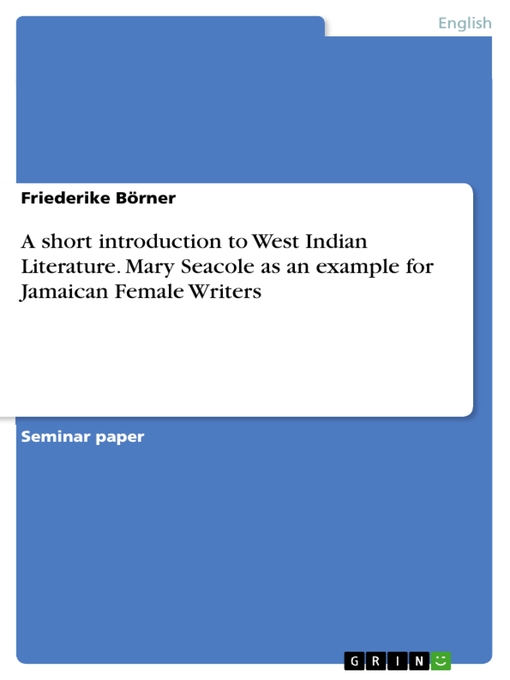- No wait, no problems
- What's new?
- Popular titles
- Check these out!
- Great Audiobooks for a Family Road Trip
- Audiobooks for the Whole Family
- See all
A short introduction to West Indian Literature. Mary Seacole as an example for Jamaican Female Writers
ebook-
Description
-
Details

OverDrive Read
- ISBN: 9783668205451
- Release date: April 26, 2016
PDF ebook
- ISBN: 9783668205451
- File size: 408 KB
- Release date: April 26, 2016
